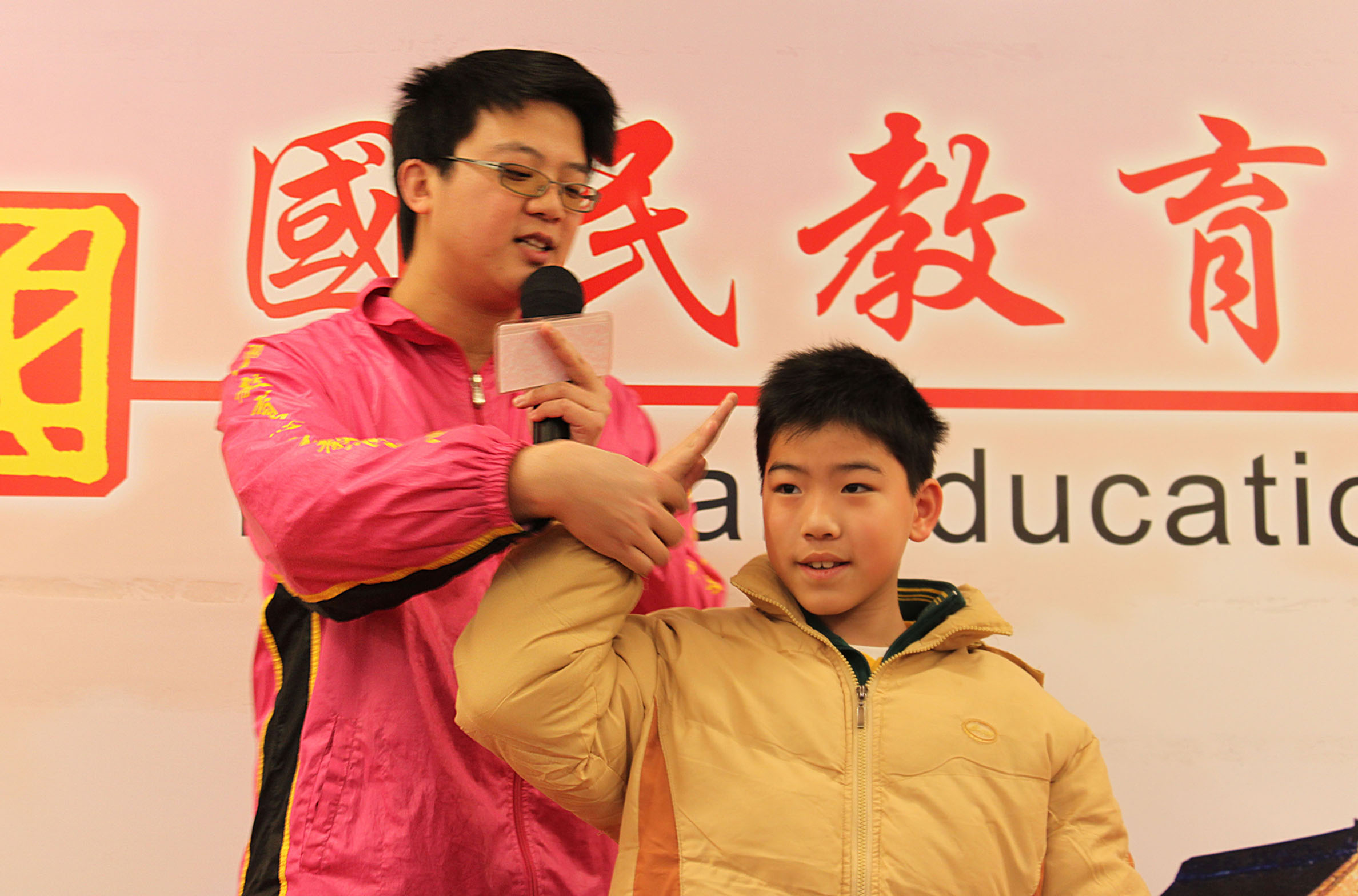How is the dominant one-sided national education in Hong Kong affecting students’ sense of Chinese identity?
Reporters: Dora Chiu and Joyce Lee
The primary students stand in straight lines and sing the national anthem. “Walk solemnly, stand firm, stay focused, and salute,” instructs their teacher as the school’s flag-raising team hoists the national flag.
Flag-raising ceremonies have become part of the routine at the Sheng Kung Hui Yautong Kei Hin Primary School. It is part of the national education this and other schools are conducting to promote a sense of national identity in Hong Kong’s young people. Most of the flag-raisers in the team have been receiving national education since they were in kindergarten.
According to a Varsity survey of 285 local university students who attended local schools for at least four years, 60 per cent of respondents first received national education before the age of 12. The poll showed 56 per cent of respondents regarded themselves as “Hong Kongers from China”, while 40 per cent said they were certain national education affected their national identity.
Eric Ma Kit-wai, a professor at the Chinese University of Hong Kong who has studied Hong Kong people’s sense of identity for over a decade, says the younger generation’s sense of national identity has increased significantly compared with only a slight increase among adults. He attributes this to the incorporation of national education in schools.
Yet, despite public discussions about national education, what “national” means is seldom clearly defined. The Chinese word guojia encompasses the concepts of country, nation and state. Where “country” is a geographical definition, “nation” denotes common ethnicity and culture, and “state” refers to a ruling power. When the word guojia is used interchangeably for these different meanings, these distinctions can become blurred, and people fail to realise that they can be discussed separately. Some scholars have noted that throughout Chinese history, the term guojia and other phrases with the character guo often implied the superiority of the state over everything else.
National education in Hong Kong also blurs the distinctions between country, nation and state. The two largest organisations providing national education materials in Hong Kong, the Hong Kong National Education Centre and the Hong Kong National Education Services Centre, focus mainly on China’s economic and technological development, as well as its history, arts, sports and geography. Politics is seldom discussed.
The two organisations were initiated by the pro-Beijing Hong Kong Federation of Education Workers and established with government support in 2004 and 2007 respectively. Ma says their governmental affiliation means it is unlikely they would cover the negative aspects of China or separate China from the ruling Chinese Communist Party.
However, Ma says it is important to define a country when conducting national education. This should be done through learning the history of how a country came to be what it is today, including the positive and the negative aspects of that process.
“A government would want to perpetuate its power by blurring the distinctions (of the different aspects of a country),” says Ma. “But a good national education would let students know that it is the people who vest power in a government. Therefore they have the responsibility to question what it does.”
Wong Chi-ming, director of the Hong Kong National Education Services Centre, says the ultimate purpose of national education is to encourage students to contribute to their country. He believes this is achieved through developing their sense of national identity by increasing their understanding of China. Wong says it is very important for students in Hong Kong to realise their identity as Chinese and to think as a Chinese.
This is also the mission of Hon Wah College, a school that has promoted national education since its establishment in 1945. Teachers raise the national flag and SAR flag every morning and students attend a flag-raising ceremony once a month.









































[…] from mainland China, Hong Kong's elementary schools have to start a new curriculum on “national education.” Recently revealed, its module on the “China model” is full of political […]
[…] from mainland China, Hong Kong's elementary schools have to start a new curriculum on “national education.” Recently revealed, its module on the “China model” is full of political […]
[…] from mainland China, Hong Kong’s elementary schools have to start a new curriculum on “national education.” Recently revealed, its module on the “China model” is full of political propaganda, such as […]
[…] And, before the current furore the Chinese University of Hong Kong had earlier engaged the question in 2011 – How is the dominant one-sided national education in Hong Kong affecting students’ sense of Chinese…? […]
I do understand that a citizen must love his/her country by understanding the policy which is using in that time. Seperating the national education is equal to betray the spirit of the National.